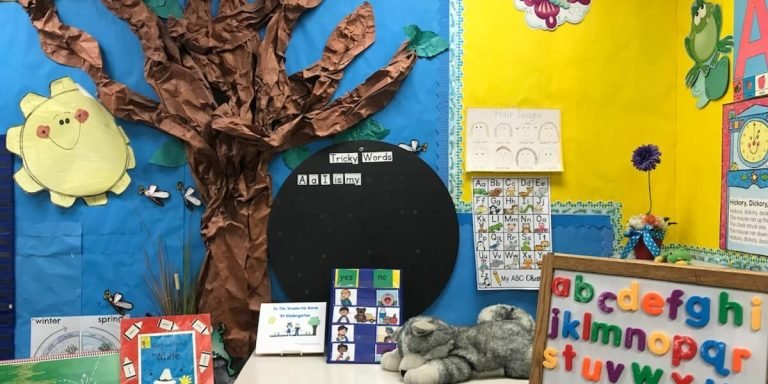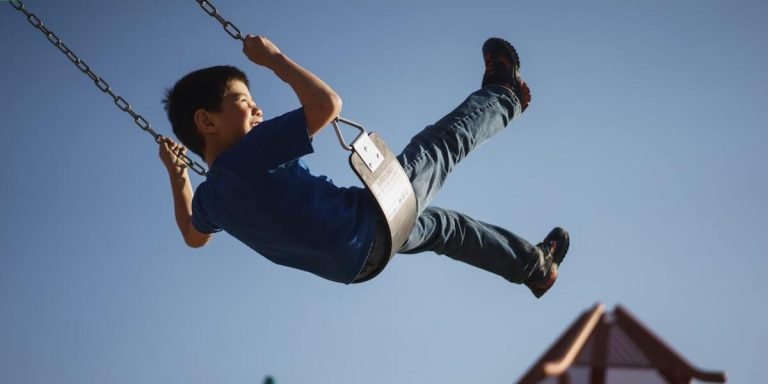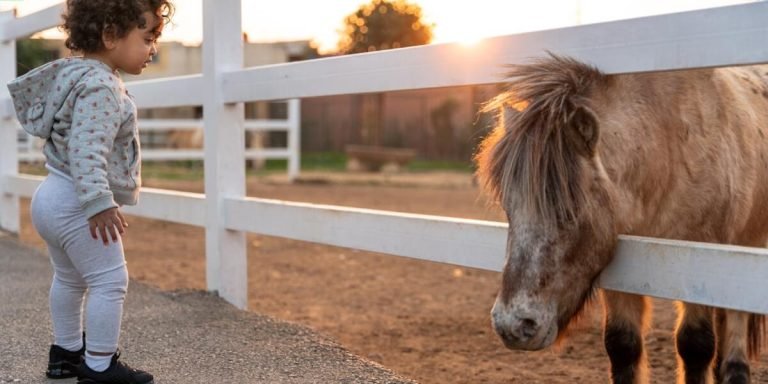Daycare Teacher Job Description: A Comprehensive Insight into Early Childhood Education Role
A daycare teacher job description is perhaps one of the most misunderstood in early childhood education yet carries immense importance. The role they play in shaping, guiding and nurturing young minds during their developmental stages can’t be underestimated. They wear many hats ranging from being caregivers to educators – an integral part contributing to a child’s formative years.
Knowing exactly what this crucial role entails has multiple benefits: for parents considering sending their children to daycare; individuals aspiring towards this profession; or anyone involved with early childhood education looking to increase understanding of various stakeholders’ functions. This blog post offers comprehensive insight into the critical responsibilities that typically fall under a day care teacher’s purview, shedding light on different aspects of this multifaceted occupation.
Did you know?
According to the U.S. Bureau of Labor Statistics, daycare teachers with a degree in early childhood education tends to have higher job prospects and can often command better salaries.
Understanding the Role of a Daycare Teacher
In the realm of early childhood education, daycare teachers play an indispensable role. They are tasked with numerous responsibilities that stretch beyond mere supervision and childcare. These professionals have a specific job description requiring them to build an environment conducive for young children’s holistic development in 2023.
A daycare teacher’s job is multidimensional and extends into various areas such as academic teaching, emotional support, social skills training, among others. They lay the groundwork for learning by creating engaging lessons plans tailored towards promoting cognitive growth while balancing it with enriching fun activities too. Furthermore, they extend their roles by fostering a warm relationship with parents – together working towards understanding each child’s individual needs better.
Being responsible for molding impressionable minds underlines just how critical this profession can be in society today! It requires unique skillsets including patience, creativity and great communication skills; elements which all contribute significantly to successful Early Childhood Education.
Key Responsibilities and Daily Tasks in Early Childhood Settings
Daycare teachers have a significant role in early childhood education. To give an insight into the daycare teacher job description, let’s breakdown their key responsibilities and typical daily tasks they undertake in these formative settings.
A daycare teacher wears several hats throughout the day, including educator, supervisor, caregiver, and at times entertainer. Here are their primary duties:
1. Planning Daily Activities: This involves designing developmentally appropriate activities that encourage children to learn about the world around them while stimulating creativity and curiosity. The schedule usually includes reading sessions, craft activities as well as time for outdoor play.
2. Fostering Social Interaction: A crucial task is facilitating social interaction among peers by using group games or team-building exercises; this helps enhance communication skills leading to emotional growth.
Essential Skills for Nurturing Young Minds
In the realm of early childhood education, a daycare teacher plays an integral role in shaping young minds. However, to successfully do so and accurately fulfill their job description requires them to possess certain essential skills.
1. Patience – This cannot be overstated enough! Children can be unpredictable and challenging, but with patience, you’ll gain their respect and cooperation.
2. Communication Skills – To effectively relay information to both children and parents is crucial for a smooth daily operation—explaining concepts simply or conveying disciplinary concerns would fit into this category.
3. Creativity – Making learning fun through creative activities that stimulate curiosity will not only help children grasp new concepts more easily but also foster love towards learning at an early stage!
5. Physical Stamina – This may seem odd on first sight but being physically fit helps keep up with active youngsters throughout the day—it goes beyond standing during lesson delivery!
6. Love for Learning – An inherent passion for educating oneself broadly reflects onto students who then get encouraged seeing your enthusiasm about knowledge acquisition which they aspire after too.
7. Empathy – Being able empathise provides comfort making interactions personal leading nurturing relationships formed benefitting overall growth individual within supportive environment provided by you as daycare teacher 2023 where every interaction makes defining impact developing persona these young individuals amidst rapidly transforming world around us.
The Educational Framework Guiding Daycare Teachers
The role of a daycare teacher extends beyond merely watching over children. They are entrusted with molding young minds in their critical formative years, adhering to an educational framework that integrates cognitive development and social-emotional growth. The crux of any daycare teacher job description is the implementation of this structured learning approach grounded in early childhood education principles.
In 2023, we see a continued emphasis on helping children develop holistically at daycare centers. Daycare teachers strive to create environments encouraging exploration and curiosity while fostering essential skills such as problem-solving, empathy-building, language acquisition among others. Teachers not only facilitate structured activities but also guide spontaneous interactions that lead to significant learning experiences.
At the same time, understanding each child’s unique needs necessitates keen observation abilities from these educators – all encapsulated within their job description. It becomes paramount for them to recognize varying developmental stages among pupils and adapt teaching strategies accordingly so every learner can flourish at individual paces.
Curriculum Development and Implementation Strategies
In the intricate and dynamic world of early childhood education, the daycare teacher job description extends far beyond supervising playtimes and snack breaks. A critical part lies in effectively developing robust educational curriculum to promote cognitive, social, emotional progress while enhancing their creativity.
One aspect that elevates a daycare setting from mere custodial care is an engaging learning environment fostered through strategically designed curriculums. These are inspired by contemporary teaching methodologies that adhere to state guidelines for early childhood education but also resonate with child-centric pedagogy patterns.
Daycare teachers use several strategies to construct useful frameworks, emphasizing flexibility and adaptability to accommodate the diverse backgrounds and developmental stages of children.
1. Individual Learning Plans: To cater diversified needs of youngsters enrolled in daycares, individual learning plans form integral components reinforcing personalized attention towards each child.
2. Integrating Play-Focused Methods: Daycare professionals incorporate play-based techniques into daily routines turning mundane tasks into exciting exploratory ventures thus stimulating creativity and problem-solving skills among young learners.
3. Incorporation Of Technology-Empowered Tools: In line with advancements witnessed across academics globally, technological tools have found ways within preschool classrooms too assisting educators enrich e-learning experiences at such tender ages balancing screen-time appropriately keeping it fun-filled yet informative.
4. Collaborative Teaching And Cooperative Learning Techniques: Familiarizing students with team dynamics forms another cornerstone ensuring smoother transitions as they ascend on academic ladders hence focusing on group activities encouraging teamwork can be productive affairs under this category.
Monitoring Growth: Assessments and Progress Reports in Early Learning
The childcare landscape has evolved significantly, and the daycare teacher job description now entails more than just supervising playtimes and snack breaks. Today, part of their central role is monitoring growth through ongoing assessments and progress reports in early learning.
Daycare teachers continually observe children as they interact with their environment. They keenly watch how kids explore learning materials, engage with peers, develop language skills or approach problem-solving tasks. From these observations emerge meaningful insights into each child’s developmental journey.
Assessments are not always formal affairs featuring tests; rather they can be subtle day-to-day activities meticulously curated by the observant eye of a skilled daycare teacher. It could range from tracking changes in a child’s drawing over time to structured observations during free play sessions.
Sherbet-colored construction paper pinned on boards show off skill development: increasing fine motor control seen via tightening scribbles or refined scissor handling abilities producing intricate cut-outs! All reflect milestones towards mastering cognitive functioningsoldiering silently behind brightly hued crayon tracks!
Progress reports hold equal importance in this educational framework guiding daycare teachers’ daily engagements while reinforcing parent-teacher collaborations. These documents encapsulate key academic achievements alongside notable social-emotional developments observed across weeks if not months! Progress report cards serve as bridges connecting parents to those magical moments unfolding within classroom walls that help shape tomorrow’s leaders bit-by-bit today!
Creating Optimal Learning Environments as a Daycare Teacher
As a daycare teacher in 2023, crafting optimal learning environments is an integral part of your job description. This involves not just equipping children with essential academic skills but also fostering their social and emotional development. The goal here isn’t to create miniature scholars; rather, it’s about molding well-rounded individuals who are ready for the next stage of their educational journey.
Creating these highly effective learning spaces requires strategic planning and execution. Understanding each child’s unique needs plays a key role – assessing individual strengths and weaknesses helps tailor more personalized teaching strategies that better engage students effectively. Equally important is promoting an atmosphere where curiosity thrives – answering questions, asking thought-provoking ones yourself or providing games that stimulate young minds can truly make all the difference when it comes to enhancing cognitive growth.
Daycare teachers must also prioritize creating an environment conducive to peer interaction as this aids early childhood education significantly by cultivating vital communication skills among children from tender age itself . The classroom setup should therefore encourage teamwork through activities like group projects while at simultaneously ensuring space for independent exploration too.
In essence, striking balance between targeted instruction and free play forms core element of “daycare teacher” role today making sure our future generation experiences holistic education right from get go!
Classroom Management Techniques for Toddlers and Preschoolers
In the ever-evolving field of early childhood education, a daycare teacher’s job description isn’t limited to just monitoring children. It requires creating an optimal learning environment to foster intellectual and emotional growth among toddlers and preschoolers—an essential part in shaping their future selves.
Classroom management techniques are crucial for young learners. Their delicate age requires engaging and effective innovative methods. Here are some proven strategies:
Creating a structured routine: Children thrive with predictability; hence establishing a consistent daily routine can effectively manage your class while providing them with the security they need at this stage.
Promoting self-regulation: Encourage students towards self-discipline by guiding them how to clean up after activities or settle conflicts—this not only teaches responsibility but also instills basic social skills necessary beyond school boundaries.
Building solid relationships: A child feels more comfortable and cooperative when he knows his teacher cares about him personally too—not merely academically. Regularly engage with each one individually fostering trust ensures smoother execution of tasks within classroom borders as well outside.
Rewarding positively – Use reinforcements like star charts or fun stickers for good behavior instead of punishing negative actions – make them look forward rewarding experiences rather than fear consequences bad ones.
Fostering Emotional, Social, and Cognitive Development
As a daycare teacher, your job description doesn’t just involve watching over children—it involves molding and shaping young minds. In the pursuit of early childhood education, fostering emotional, social and cognitive development is key. The nurturing environment cultivated by you as an educator can offer immense growth opportunities for youngsters.
First on our list is fostering emotional development – this plays a significant role in setting solid foundations during the formative years. As children learn to identify and react appropriately to their own feelings or those of others around them, they build empathy—one of life’s most essential skills. Some effective strategies that help foster emotional growth include encouraging open communication about emotions and providing consistent positive feedback.
Next up we have Social Development – equally vital in building healthy relationships with peers later on in life. This begins with teaching basic tenets like sharing toys or taking turns which gradually progress towards more complex concepts like problem solving collaboratively as part of teamwork activities.
Lastly yet importantly; Cognitive development which revolves around stimulating curiosity thus making learning an appealing endeavor rather than burdensome chore.Kids are natural explorers.To feed their little curious minds effectively engaging age-appropriate games, puzzles, and books serve well.As motor skills develop hand-in-hand alongside brain functions, sensory-rich experiences such as play-dough crafting, easy baking projects among other things should be encouraged.
Conclusion
In a nutshell, the daycare teacher job description is much more than just ‘babysitting’. It’s about educating and nurturing young minds in their most formative years. They are architects of the future who shape little lives with love, patience, creativity and guidance to foster an enriching learning environment.
We hope you now have a comprehensive understanding of this vital role within early childhood education. Feel free to navigate around our website for more valuable insights on child education processes – your guide towards making informed decisions as parents or educators. Know that supporting children’s educational journey effectively starts by being well-informed!







